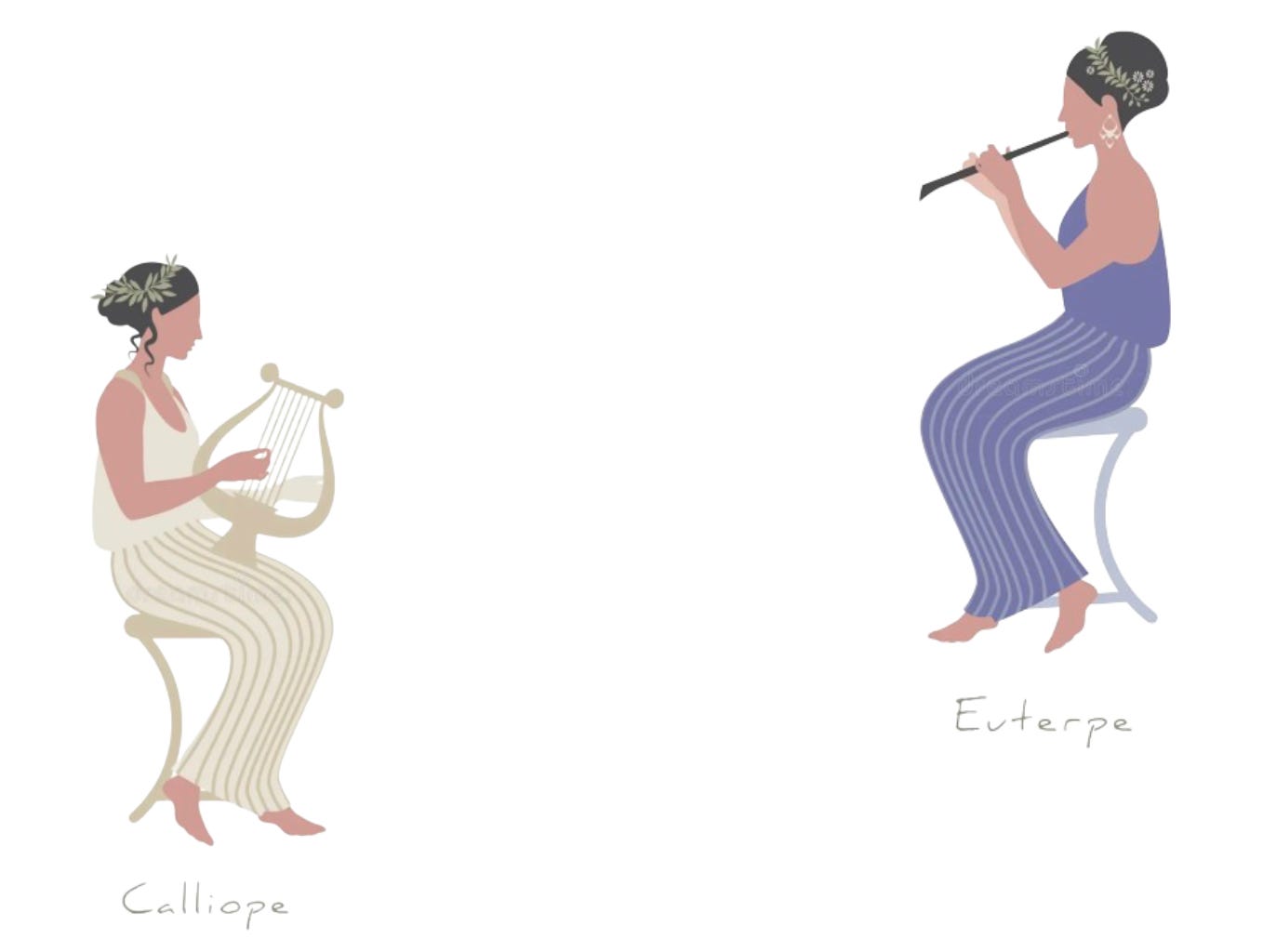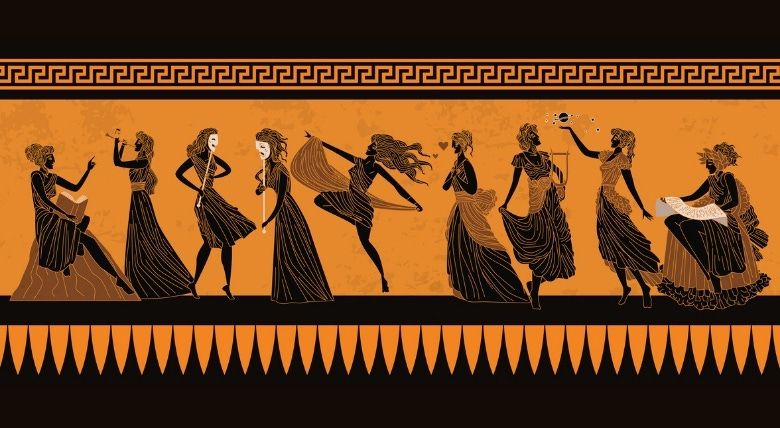by Eugenia Manolidou
The word “Muse” has its origins in ancient Greek mythology. The nine Muses were the inspirational goddesses of literature, science, and the arts. According to Greek mythology, they provided inspiration to artists, poets, musicians and in general, anyone who wanted to be inspired, asked for the Muse’s blessing.
Indeed, Homer, the famous poet, begins both his twin epics, the Iliad and the Odyssey, asking inspiration from the Muse.
But what about the word itself?
The word “Muses” is derived from the ancient Greek word “Μοῦσα – Moussa.” The Muses were the daughters of Zeus and Mnemosyne, the goddess of memory. They were venerated in ancient Greece and later in Roman culture, where they were known as the “Musae.” In Greek they are called “Μοῦσαι”.
Each of the nine Muses was associated with a specific domain. So if you are looking for a certain type of inspiration, make sure to ask the right one! Here are their fields:
- Cleo – History
- Euterpe – Music, especially lyric and flute playing
- Thalia – Comedy
- Melpomene – Tragedy
- Terpsichore – Dance
- Erato – Love poetry
- Polyhymnia – Sacred poetry
- Urania – Astronomy
- Calliope – Epic poetry

Over time, the concept of the Muses has transcended its mythological origins and has come to represent the sources of inspiration and creativity in various fields of the arts and sciences. The term is still used today to describe individuals or things that inspire and stimulate creative endeavors.
We can still see this inspiration in many modern terms that that derive from the Greek word “Μοῦσαι – Mousae”.
Directly related to the Muses, the word “music” comes from the Greek word “μουσική – mousikí”, while “amuse” means entertaining or enjoyable activities. The word “mosaic” meaning “of the Muses”, originally referred to artistic work associated with the Muses, particularly in the context of the arts.
Τhe word “museum” comes from the Greek word “μουσεῖον – moussíon,” meaning a place or temple dedicated to the Muses, and the study of museums and their roles in society is called “museology”, combining the words “Muse” and “Logos” – which bring us back to our first Ancient Greek Word of the Week, «λόγος».
As the language evolves, the connections between words and their origins may not always be immediately apparent. However, the influence of the Muses on language and culture is clear in terms and concepts related to inspiration and creativity.
So, next time you visit an amusement park, or a museum to see a beautiful mosaic, close your eyes and you may feel the breeze of the Muses echoing their name from the past!
Questions:
Which one is your favorite Muse and why?
How do you think the word “Μοῦσαι” is pronounced in Ancient Greek?
Activity:
Try to write the word «Μοῦσαι» in Greek!
https://classicalwisdomkids.substack.com/i/140776687/can-a-muse-amuse
